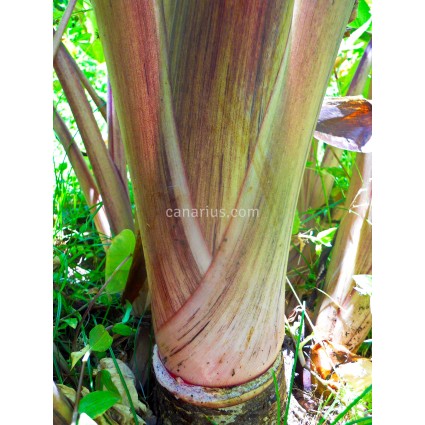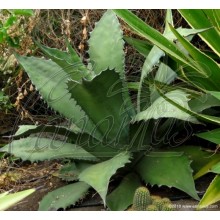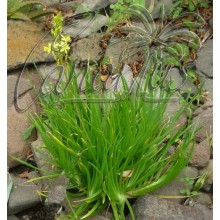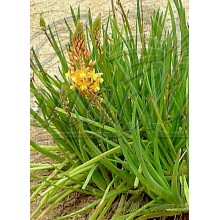Colocasia esculenta 'Manini 'Owali'
Neu
Taro or Ñame is the edible corm of a spectacular plant with large leaves. Colocasia esculenta has large exotic foliage and produces thick edible "roots". It is an ancient crop native to a wide area of the world, from India to New Guinea and the Pacific Islands. It was also spread to Africa and Southern Europe in the far past.
Colocasia esculenta is easy to grow in moist to wet or even flooded soil. Full sun is recommended for the healthiest growth and the heaviest crop.
Growing taro in a pot
If you plan to grow Colocasia esculenta in a pot, then any pot is sufficient as long as it has a dish with water below. But a size of about 30 cm will allow the plant to bear its beautiful huge leaves and produce a few corms for the kitchen.
What do we ship?
Depending on season and availability we will send a corm with few or no leaves, or a plant in a pot, or a plant bare-rooted in sphagnum. In any case you will receive one healthy plant!
| Anbau | Innenanbau |
| Herkunft der Arten | Oceanien |
| Präsentation | Freiliegende Wurzeln |
| Maximale Größe | 70cm-200cm |
| Botanische Familie | Araceae |
| Lichtbedürfnis | Sonne |
| Mindesttemperatur im Winter | 0 ºC bis 10 ºC |
| Pflanzentyp | krautartig |
| Pflegebedürfnis | Blumentopf |
| Wuchsform | Perennierend |

























